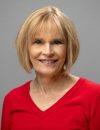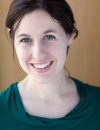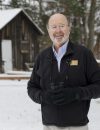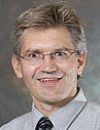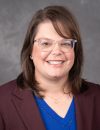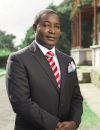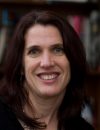UW-Madison and its affiliated entities are an economic engine contributing $30.8 billion a year to the Wisconsin economy, according to a new report commissioned by the university and funded by UW Foundation.
UW In The News
-
Fox weather forecaster Dean turns into fierce Cuomo critic
Kathleen Bartzen Culver, director of the Center for Journalism Ethics at the University of Wisconsin, said those situations aren’t comparable.
“It might be wise for us to take this out of the context of Fox News and ask whether the weather personality on our local station should be calling for the arrest of our mayor,” she said. “I think that would make people profoundly uncomfortable and justifiably so.”
-
Are food and energy prices included in inflation rates?
So how is inflation even measured? Well, “there’s as many measures of inflation as there are economists studying it,” said Steven Deller, a professor of agricultural and applied economics at the University of Wisconsin-Madison. But the inflation rates we hear about most often do include health care, energy and food. Economists will sometimes look at a number called “core” inflation that takes out food and energy prices because they can fluctuate quite a bit.
Another main measure is the personal consumption expenditures price index, or the PCE. This measure, run by the Bureau of Economic Analysis, updates how items are weighted in its formula to better reflect consumer behavior, said Menzie Chinn, professor of public affairs and economics at the University of Wisconsin-Madison. Because of this, the PCE is in some sense more representative of the costs consumers face, Chinn said.
-
The end approaches for Chile’s military-era constitution
“The Chávez-led constituent assembly in Venezuela is the cautionary tale par excellence — and the conservative opponents to the process in Chile bring it up all the time,” said Alexandra Huneeus, a Chile-born professor at the University of Wisconsin who examines law and rights in Latin America.
-
2 million Americans have been repaying their federal student-loans for 20 years
“You’re working with a small number of people in the first place who were in it,” said Nicholas Hillman, an associate professor in the school of education at The University of Wisconsin-Madison. “A lot can happen in your life in 25 years; to whittle it down to 32 at the end, 32 people who must have stuck with that bureaucratic mess over this period of time, in some ways that’s not at all surprising because it’s a gauntlet.”
-
Other States Seek to Emulate Wisconsin’s Wolf Massacre
Dr. Adrian Treves, a professor of environmental studies at UW-Madison and founder of the Carnivore Coexistence Lab, says the hunt was problematic for many reasons, but a few stand out. First, it throws off last year’s wolf count, which would have been used to create a new wolf management plan. “The data is now unreliable because a wolf that might have been counted could very well be dead by now,” says Treves.
-
EXPLAINER: Ex-cop trial to include ‘spark of life’ on Floyd
“I’ve never encountered this before,” said John Gross, an associate law professor at the University of Wisconsin-Madison who has worked as a public defender in New York City and taught criminal defense strategies at Syracuse University and the University of Alabama. “It’s pretty obvious how much potential prejudice that could have on the jury. It’s a little surprising to me this is potentially fair game in Minnesota. If it isn’t evidence of guilt, why is it there?”
-
Was ‘Democracy in the Park’ illegal?
Barry Burden, director of the Elections Research Center at the University of Wisconsin, said the event doesn’t match the definition of ballot harvesting or ballot collection.
-
COVID Relief Bill Could Cut US Poverty in Half, For Now
“It’s a huge change,” said Sarah Halpern-Meekin, a professor in the LaFollette School of Public Affairs and the Department of Human Development and Family Studies at the University of Wisconsin–Madison. She said the nearest historical comparison in terms of impact on society would be the Social Security Act of 1935, which set up a system of guaranteed income for most retirees in America.
-
U.S. Lawmakers Suggest 25 Movies About Latinos to the Film Registry – The New York Times
The list speaks to many parts of the Latino experience, including people who are native to the United States and its territories and those who migrated to the country because of its politics and interventions in Latin America, Theresa Delgadillo, a Chicana and Latina studies professor at the University of Wisconsin-Madison, said in an interview.
-
Oprah’s deft royal interview shows why she’s still the queen
“The thing that struck me first and I think will stay with me the longest is that she began the interview” with ethics-related disclosures, said Kathleen Bartzen Culver, director of the Center for Journalism Ethics at the University of Wisconsin-Madison. “That was such a fantastic way to be transparent about what we were going to see in that interview last night, and how we as viewers can judge its credibility.”
-
Pulling racist Dr. Seuss books makes kids? literature better and more inclusive, writes Meena Harris
But the problem isn’t just the presence of stereotypes in children’s literature. There’s also an absence of inclusion. According to the Cooperative Children’s Book Center at the University of Wisconsin-Madison’s school of education, about half of new children’s books in 2018 centered White characters while about 1 in 4 focused on people of color.
-
Dr. Seuss Books Are Pulled, and a ‘Cancel Culture’ Controversy Erupts
Data compiled by the Cooperative Children’s Book Center at the University of Wisconsin-Madison’s School of Education in recent years has shown a significant increase in the number of authors and characters of color in the books it tracks. There remains, however, a long way to go.
-
UW-Madison professor Tracey Holloway wants to educate moms on climate change through work with Science Moms
As a scientist, Tracey Holloway has spent a lot of time thinking about how climate change is going to affect the world.
As a mother of two young boys, she spends a lot of time thinking about what the world will be like when her youngest son — now only 10 months — turns 30.
“It always seemed like 2050 was so far into the future, but now my baby’s going to be 30 in 2050, and that’s not that far away,” she said.
Holloway, a professor at the Nelson Institute for Environmental Studies at the University of Wisconsin-Madison, has been studying air quality and pollution for nearly 20 years. Now, she’s teaming up with other women scientists to help make understanding climate change accessible, forming a group called Science Moms.
-
Is it possible to have safe and equitable elections?
Holding elections in the coming years will not be simple but it is within our grasp to have a safe and uneventful elections. Using proven scientific methods is the path to improvement.
Dr. Laura A. Albert is a professor of Industrial and Systems Engineering at the University of Wisconsin-Madison. Dr. Barry C. Burden is a professor of Political Science and director of the Elections Research Center at the University of Wisconsin-Madison.
-
Expanding tax credit could lift millions of kids out of poverty
“So it’s going to go up from $2,000 to $3,000 for all children, and then an additional $600 for young children,” said Katherine Magnuson, who runs the Institute for Research on Poverty at the University of Wisconsin-Madison.
-
Study Changes What’s Possible During Sleep
Benjamin Baird, a sleep researcher at the University of Wisconsin–Madison who wasn’t involved in this study, told Scientific American the findings “challenge our ideas about what sleep is.” SciAm has more:
-
Native American food traditions: A renewed drive to keep them alive
“People are hungry – literally hungry to eat these foods,” says Mr. Cornelius, who is also a technical adviser for the Intertribal Agriculture Council, based in Billings, Montana, and an instructor at the University of Wisconsin-Madison. “But also, in a more figurative sense, they’re just hungry for knowledge.”
-
Cape Cod robins gather in noisy flocks in winter to follow the food
Elizabeth Howard, founder and director of Journey North at the University of Wisconsin-Madison Arboretum, told The Nature Conservancy’s “Cool Green Science” that the birds “can withstand very cold temperatures. In most places you can see robins in the wintertime. You’ll see them wandering around and yet it’s not considered migration because basically they’re moving in a nomadic way, following the food.”
-
How a microbiologist’s 1966 discovery in Yellowstone made millions of COVID-19 PCR tests possible
Like so many great scientific discoveries, Tom Brock started the research that would go on to revolutionize the field of biology — and pave the road to the development of the gold-standard COVID-19 tests used to fight a pandemic — with a question.
-
What Is a Mask Brace? Does It Work?
To bring surgical and cloth masks up to par with N95s and KN95s, you can opt for a mask brace, which is an even better solution than double masking, says David Rothamer, a professor of mechanical engineering at the University of Wisconsin-Madison who has conducted work evaluating mask braces.”It’s kind of interesting that it’s taken awhile for mask fitters or braces to have more visibility,” Rothamer tells Popular Mechanics. “The whole double masking thing is really trying to do the same thing as a mask fitter or a brace, but in a more indirect way. My main concern with double masking is that it’s going to depend on the combination of the two masks.”
-
COVID: US life expectancy at record low; Blacks, Latinos most affected
While the life expectancy gap between Black, Latino and white populations were narrowing before the pandemic, overall life expectancy was steadily declining because of a variety of public health issues, said Michal Engelman, associate professor of sociology at the University of Wisconsin-Madison.
-
Proposed Legislation Aims To Address Racial Disparities In Maternal Health Care
In Wisconsin, while the maternal mortality ratios are lower in absolute terms than the nationwide average, the magnitude of the gap between Black mothers and white mothers is larger, said Tiffany Green, University of Wisconsin-Madison assistant professor in the Departments of Population Health Sciences and Obstetrics and Gynecology.
-
US life expectancy falls by a year amid COVID-19 pandemic
But the US experienced a backslide due to the pandemic, according to Michal Engelman, associate professor of sociology at the University of Wisconsin-Madison.
“This has been an issue of concern for a while, that we weren’t making progress and we were sliding a little bit backwards,” Engelman told the newspaper. “After a couple of years of worrisome declines, we dropped as a country a whole year just in the first half of 2020.”
-
COVID-19 vaccine rollout has some feeling envy, resentment, anger
“It doesn’t make you a bad person because you have these kinds of feelings,” said Robert Enright, a licensed psychologist and professor at the University of Wisconsin, Madison who studies moral development and the science of forgiveness.
-
Advice About the End of the Pandemic, From a Combat Veteran
Someday, maybe soon, this will all be over. Things will start to get back to a kind of “normal,” whatever that may look like, and lives will begin to pick up where they might have left off. At least, that’s what many are hoping for.
Chad S.A. Gibbs served in the US Army from 2002-2009, including deployment to Iraq. He is currently a PhD candidate in the history of the Holocaust at the University of Wisconsin-Madison. He tweets at @Chad_G101.
-
Nature Makes Wood. Could a Lab Make It Better?
In addition to the tantalizing possibilities of growing whole furniture, the plant-based materials could enhance fuels and chemicals production, says Xuejun Pan, a professor in the Department of Biological Systems Engineering at the University of Wisconsin, Madison, who wasn’t involved in the study. “You don’t have to necessarily grow a strong piece of wood. If you can produce a biomass, for example, as a future feedstock for bioindustry—competitively and productively—that could be attractive,” he says
-
Panpsychism: The Trippy Theory That Everything From Bananas to Bicycles Are Conscious
Of course, panpsychism is likely not falsifiable. There’s no experiment that can determine whether or not your mailbox has a mental life, much less a quark. Yet that doesn’t mean science isn’t working on the problem. Giulio Tononi, a neuroscientist at the University of Wisconsin–Madison, has developed something called the integrated information theory of consciousness (IIT). IIT holds that consciousness is actually a kind of information and can be measured mathematically, though doing so is not very straightforward and has caused some to discount the theory.
-
What Presidents Mean When They Talk About ‘Equity’
While Obama also used equity in the more modern, social-justice sense of the word, he did so less often than Biden already has — a possible sign of his reluctance to center race as a national issue as the country’s first Black president, said Dietram A. Scheufele, a social scientist who studies political communications at the University of Wisconsin-Madison.
-
The Comfort of a Lunar New Year in Isolation
Essay by Professor Beth Nguyen
Lunar New Year might bring to mind festivals and fireworks, but I’ve always associated it with a kind of isolation. Long before the pandemic, long before the rest of America learned about sriracha and pho, I grew up in a Vietnamese refugee family in a mostly white town in Michigan.
-
UW-Madison claims nearly $31 billion in annual economic impact to Wisconsin
- Newer stories
- Page 45 of 140
- Older stories
Featured Experts
Kathleen Glass: Food safety
Food is an integral part of Thanksgiving. And who doesn't love leftovers? But after how long should you leave those… More
Cecelia Klingele: Body-worn cameras by police
Madison Police Chief Shon Barnes is requesting that the city fund widespread use of body cameras for officers in the… More
Stanley Temple: Fall phenology
The days have finally started getting cooler and we all know winter awaits. Stanley Temple, an expert on birds, wildlife, endangered… More
Jonathan Temte: The seasonal flu shot
Family medicine professor Jonathan Temte is available to discuss this year's updated seasonal flu shot and flu prevention and control. More
Noelle LoConte: Pancreatic Cancer Awareness Month
Pancreatic cancer is one of the most difficult cancers to prevent, diagnose or treat. Earlier this month, music legend Quincy… More
Alvin Thomas: Movember and Men's Health Month
You might see more facial hair this month as Movember goes into full effect, drawing awareness toward men's health. Alvin… More
Dominique Brossard: Vaccine hesitancy
With a new administration poised to take power in January, a change in policy regarding vaccines may also be on the way.… More

